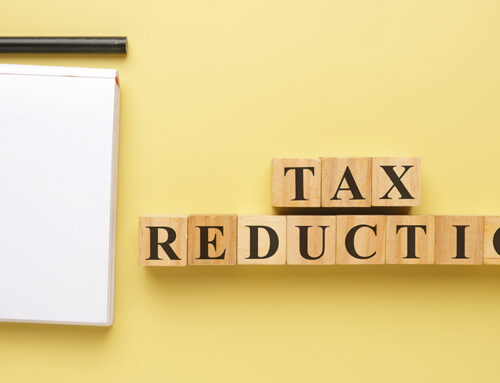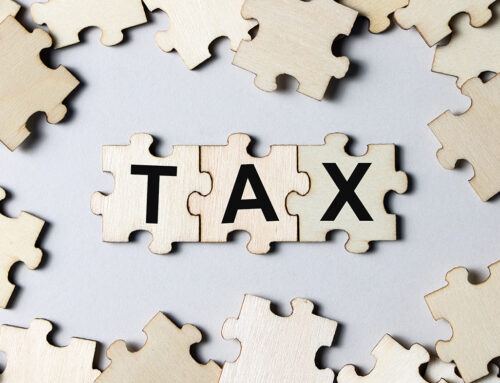 Achieving a comfortable retirement often comes down to investment performance and tax burden. However, it’s a tricky task to balance investment gains with a tax-minimization plan. If you expect your investments to perform well, you may have to accept more taxes paid when you cash out your investment, and you may even find yourself in a higher tax bracket when you do so.
Achieving a comfortable retirement often comes down to investment performance and tax burden. However, it’s a tricky task to balance investment gains with a tax-minimization plan. If you expect your investments to perform well, you may have to accept more taxes paid when you cash out your investment, and you may even find yourself in a higher tax bracket when you do so.
Capital gains taxes are taxes levied on the sale of an investment that had appreciated in value. Essentially, you may owe up to 20% in taxes on gains earned from a successful investment depending on your taxable income for that year! Although it’s important to make smart investment decisions, it’s also important to consider each opportunity’s tax situation so that you don’t end up owing more than you thought on a great investment.
One strategy that can help you defer your taxes on investments is the tax-loss harvesting strategy. This strategy essentially allows you to write off investment losses in the form of a tax credit of up to $3,000 per year.
The tax-loss rule states that your investment losses offset investment gains by their dollar values. For instance, if you had an investment whose value was set to give you a $10,000 gain and a different investment that was taking a loss of $3,000, you could sell the losing asset, pay no capital gains taxes, and receive the investment loss tax credit. Then you could reinvest both the tax credit and the sold investment into a new investment or the same one to continue growing or rebound from its low prices. In a way, it’s a small incentive to sell a losing investment for current-year tax purposes, then reinvest it to benefit from a rebound in the future. In addition, you can even apply investment losses to your income taxes. These losses can also be applied to any year you wish.
The other tax-optimization strategy you can take advantage of is the like-kind exchange rule for real estate. This rule allows you to defer taxes on real estate sold if the proceeds from the sale are reinvested in a qualified similar asset, such as another real estate property of similar value if done so within 180 days.
Taxes pose a complicated issue for retirees who expect to use their investments to cover their costs of living in retirement. When it comes to investments and retirement planning, factoring in taxes in each category of your plan is important, but isn’t easy to do so without financial expertise. Contact us at (540) 720-5656 to get started with one of our financial advisors.
Source: https://www.barrons.com








 Amy Anderson joined the ILG Financial team in 2023 as the client relations coordinator. Her responsibilities include scheduling of appointments, annual check-up notifications, and annuity and required minimum distribution assistance. She is a graduate of Harding University with a degree in Computer Information Systems. Amy and her husband have two children and she enjoys reading, crocheting, music and spending time with her family.
Amy Anderson joined the ILG Financial team in 2023 as the client relations coordinator. Her responsibilities include scheduling of appointments, annual check-up notifications, and annuity and required minimum distribution assistance. She is a graduate of Harding University with a degree in Computer Information Systems. Amy and her husband have two children and she enjoys reading, crocheting, music and spending time with her family. Chase Lopez joined the ILG Financial team in 2020 as an advisor. Chase is a 2016 James Madison University graduate with a degree in management. Chase has been trained under the tutelage of Dave Lopez, who is not only the founder and managing member of ILG Financial, but also is Chase’s uncle and godfather. He also enjoys working alongside his cousin, Megan, who is Dave’s daughter. Chase, as a fiduciary, believes in putting his clients interests first, and building out plans for his clients where they can have a happy and fruitful retirement. He married his beautiful wife in February 2022 and both use most of their free time chasing around their little pup, Aurora.
Chase Lopez joined the ILG Financial team in 2020 as an advisor. Chase is a 2016 James Madison University graduate with a degree in management. Chase has been trained under the tutelage of Dave Lopez, who is not only the founder and managing member of ILG Financial, but also is Chase’s uncle and godfather. He also enjoys working alongside his cousin, Megan, who is Dave’s daughter. Chase, as a fiduciary, believes in putting his clients interests first, and building out plans for his clients where they can have a happy and fruitful retirement. He married his beautiful wife in February 2022 and both use most of their free time chasing around their little pup, Aurora. Jessica Carson joined the ILG Financial team in 2018 as an agent. Jessica and her husband have four children, two dogs, 3 barn cats, 5 chickens, and three parakeets. She indeed loves her children and pets! When not at work, Jessica enjoys playing the piano and cello as well as traveling and spending time outside with her family, hiking, fishing, and boating.
Jessica Carson joined the ILG Financial team in 2018 as an agent. Jessica and her husband have four children, two dogs, 3 barn cats, 5 chickens, and three parakeets. She indeed loves her children and pets! When not at work, Jessica enjoys playing the piano and cello as well as traveling and spending time outside with her family, hiking, fishing, and boating. Terri Center joined the ILG Financial team in 2019 as client services manager. She handles client records, application processing, and gathering information to provide a professional and friendly experience with all of our clients. Terri is a graduate of Oakland University. She is married and has two children. She enjoys hiking, family time, and puzzle challenging video games. She also likes to share her creativity in her canvas paintings and sewing projects.
Terri Center joined the ILG Financial team in 2019 as client services manager. She handles client records, application processing, and gathering information to provide a professional and friendly experience with all of our clients. Terri is a graduate of Oakland University. She is married and has two children. She enjoys hiking, family time, and puzzle challenging video games. She also likes to share her creativity in her canvas paintings and sewing projects. Megan Jones joined the ILG Financial team in 2020 as marketing director. Megan and her husband live in Fredericksburg, VA with their German Short Haired Pointer, Gus. Megan is a graduate of Longwood University and holds a degree in communications. Megan is the oldest of Dave Lopez’s three children and not only enjoys working alongside her father, but also with her cousin, Chase, who joined the ILG Financial team in 2020 as an advisor. When not at work, Megan enjoys sitting on the back porch with family and friends enjoying food and music.
Megan Jones joined the ILG Financial team in 2020 as marketing director. Megan and her husband live in Fredericksburg, VA with their German Short Haired Pointer, Gus. Megan is a graduate of Longwood University and holds a degree in communications. Megan is the oldest of Dave Lopez’s three children and not only enjoys working alongside her father, but also with her cousin, Chase, who joined the ILG Financial team in 2020 as an advisor. When not at work, Megan enjoys sitting on the back porch with family and friends enjoying food and music.